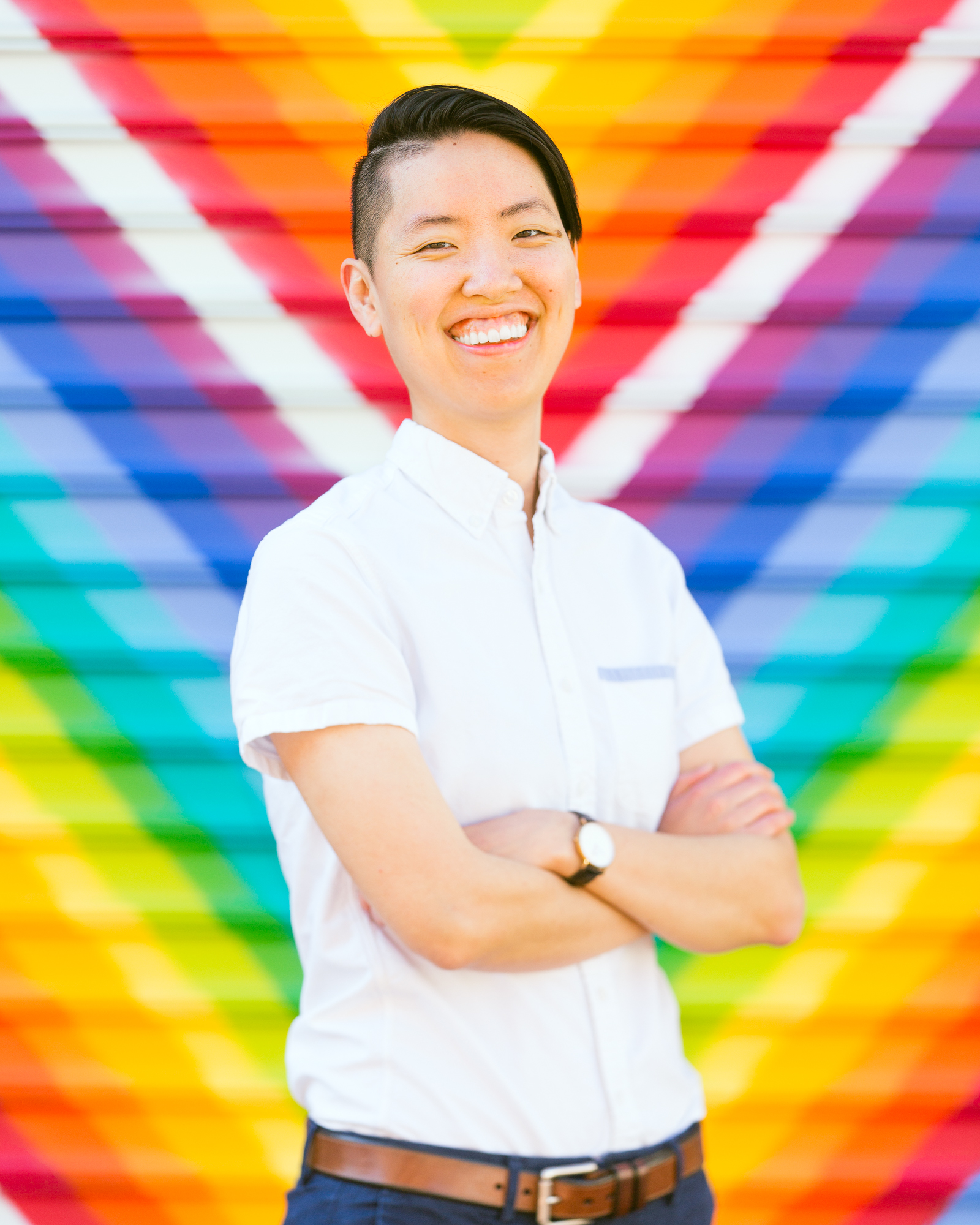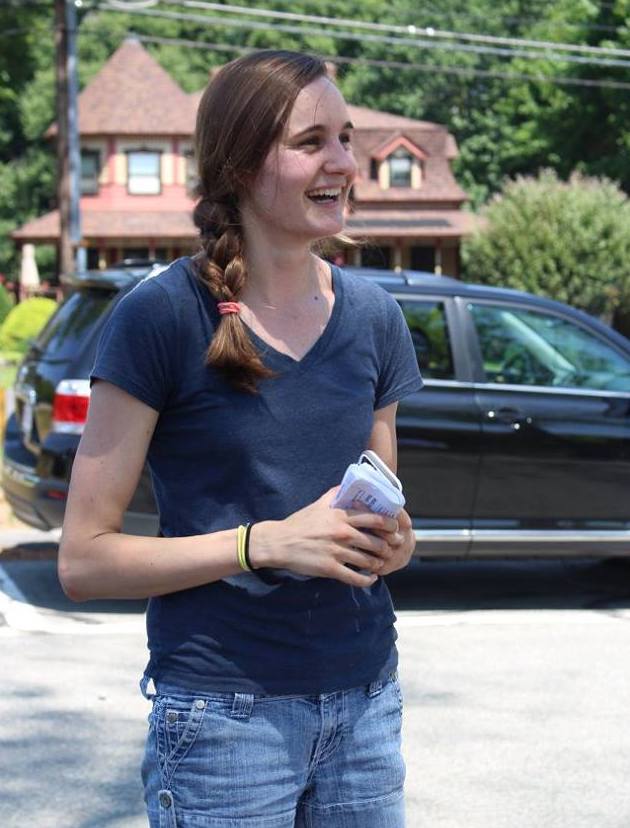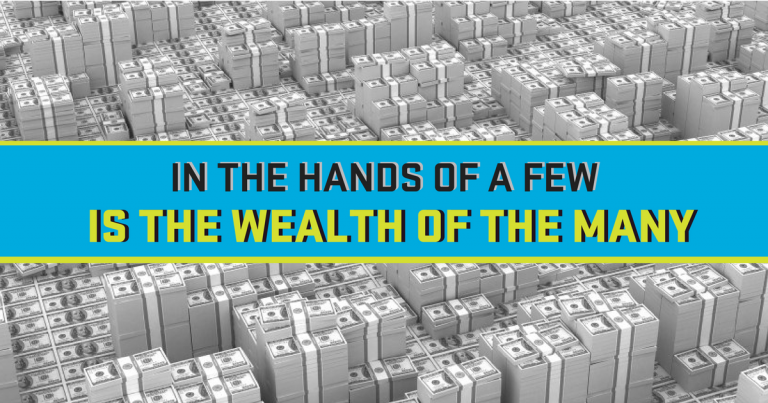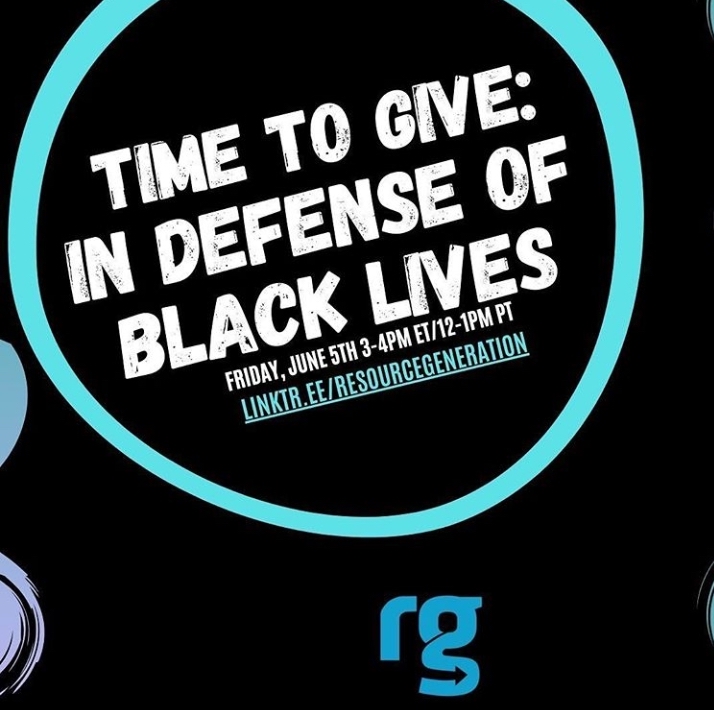From Trust Fund to Funding Trust
This past June, I made a gift of $80,000 to a social justice foundation in Boston called Haymarket. Simply put, I was able to give away $80,000 because I got it from my parents. The day after I graduated from college, they sat down with me in my half-packed bedroom and let me know that I was the owner of a trust fund worth hundreds of thousands of dollars. This was news to me, but it wasn’t exactly a shock; thanks to my parents’ careers in finance, I’d grown up squarely in the 1%, complete with fancy vacations, beautiful apartments, and four years at a boarding school where every freshman had their own horse. (Yes, that is a real thing.)
I stumbled across Resource Generation’s website a year later. (I found RG on the internet, of course — where else do millennials find things?) At the time, I’d done basically nothing with the money in my trust fund. Whenever I thought about it, I felt a wave of anxiety. I cared about building a more just and equal world and I knew that holding onto the money went against those values. But what if I gave it away and then regretted it? What if I wanted it or needed it some day? Although I knew how absurd my anxiety might seem to someone in a different financial position, I couldn’t seem to move past it.
A few months after signing up to get involved with RG online, I joined a “praxis group.” My praxis group was a small group of other young people with wealth who met in someone’s cozy basement every few weeks for six months to share dinner and discussion. On one of our first evenings together, we talked about financial planning and the idea of having “enough.” I’d been raised to believe that money was synonymous with security. I was taught that I needed to have enough to protect me (and my future children and their children) from illness, failure, and disaster of all kinds. Fellow members of my praxis reminded me that there’s no amount of money big enough to save you from everything. What’s more, there are certain kinds of safety — like the safety that comes from having clean air and water, or the safety that comes from trusting your neighbors — that can be found only by investing in your community, not holding onto resources for yourself. Another night, we talked about the way in which sharing your class status can change your relationships. Some members of my group were entirely open about their wealth with the people in their lives. Just thinking about this idea made me turn bright red and practically start hyperventilating. But they seemed unfussed, happily explaining that their openness had allowed them to build much more trusting and authentic relationships than ever before.
Most of us were white, including myself, and we talked often about how our own family histories intersected with our country’s history of racial violence. I came to see the connections between the money that I had now and the actions of my ancestors, who had owned enslaved people in the antebellum South, and held land farmed by sharecroppers under Jim Crow, and used the GI Bill to attend segregated universities after World War II. My ancestors had bequeathed me a world marked by inequality, pain, and discrimination — one in which I was deeply complicit. I felt determined to do better by my children and grandchildren and great-grandchildren.
All of these conversations proved transformational. By the time praxis ended, I had moved from giving away a few hundred dollars a year to giving away a few thousand dollars at a time. And I was starting to think about making some much larger gifts which led me to find Haymarket. I first heard about Haymarket from fellow members of my praxis group, and immediately found them compelling. Haymarket funds grassroots organizing and their grantees are some of the most effective community organizations in New England. Haymarket grantees defend families against foreclosure and protect immigrants from deportation. They win critical victories against steep odds, passing legislation making it easier for those released from prison to get a job, or protecting the rights of domestic workers.
And Haymarket’s funding model is quietly revolutionary. In most foundations, board members make funding decisions, despite the fact that board members are often wealthy white people very removed from the problems being addressed by grantees. At Haymarket, funding decisions are made by organizers with deep roots in the communities where they work. Giving to Haymarket felt like a way of shifting power, not just resources.
But it still took me months to get comfortable with the idea of giving tens of thousands of dollars at once. I was afraid that my parents would disapprove, or that the staff at Haymarket would judge me for having this kind of money to give. As I started planning, I felt sure that this would be my last large gift for a long time. After taking such a big leap, I assumed I’d want to sit back and wait a while before making such a move again.
What happened was exactly the opposite. As soon as the gift was official, I didn’t feel regret. I felt relief. My parents were very supportive. (Thank goodness for that!) So were the folks at Haymarket. (Of course, they were!) I couldn’t even really remember what I had once been so afraid of.
For the first time, I felt in my bones the truths I’d always known intellectually: that I had more than enough, that I would be more than OK, and that giving away the resources at my disposal would open up my life instead of constricting it. Instead of holding back once the Haymarket gift was official, I found myself giving away more money than before. Now, when requests come across my Facebook feed or my email inbox, I tend to give more quickly and in bigger amounts. As I become more comfortable with the idea of myself as a donor, one who is committed to shifting power in addition to money, I feel more comfortable sharing my upbringing and background with people that I meet in movement work. I’m already starting to plan towards additional gifts on a roughly similar scale to organizations like Haymarket, perhaps ones rooted in the Southwest, where I just moved. And I’m starting to scheme about fundraising on a larger scale from my parents and my broader community.
I still have a long way to go and a lot of money left to give away. But instead of the fear I once felt, I mostly just feel excited about all the amazing work that I’ll be able to help support going forward. And I feel a deep gratitude to be a part of the RG community, knowing my peers will be there to offer advice and encouragement when I’m afraid or unsure or just stuck, and knowing I’ll be able to pass on to others what I learn along the way.

Emily is a current member of RG who recently moved from Massachusetts to Phoenix, Arizona.

Iimay Ho is the Executive Director of Resource Generation. Resource Generation is the only organization in the U.S. organizing young people with wealth toward the equitable distribution of wealth, land, and power.



